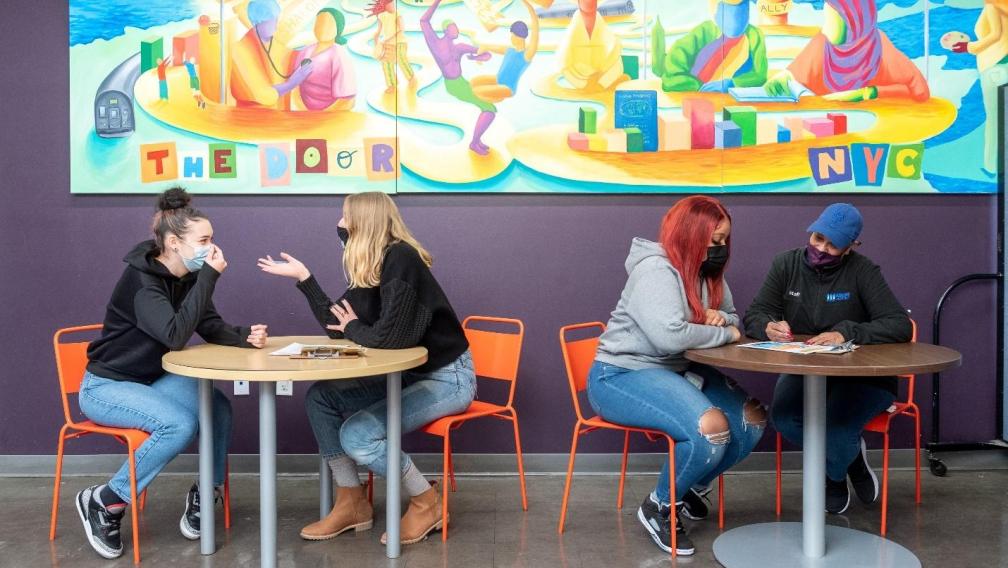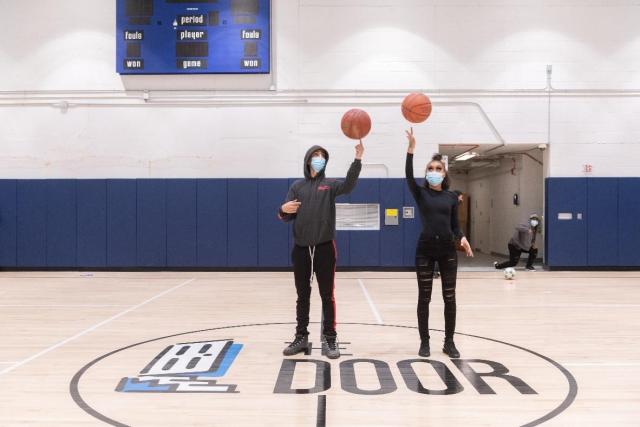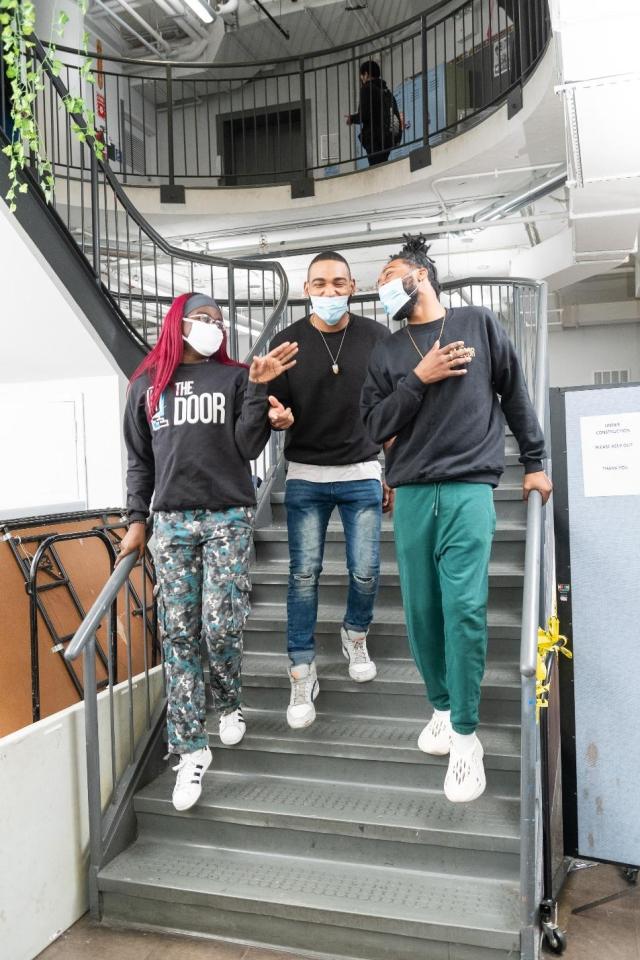The mission of The Door is to empower young people to reach their potential by providing comprehensive youth development services in a diverse and caring environment.
For the last 50 years, The Door has helped New York City's young people gain the tools they need to be successful in school, at work, and in life by staying true to its mission. The services The Door provides include supportive housing, healthy meals, comprehensive health care, mental health counseling, legal assistance, academic support, job training, and arts programming. There is no limit to the number of services one can opt into, there are no requirements to become a member, every service is free, and everything operates at a single site.
Of all the services available at The Door, the supportive services for housing-unstable youth are some of the most foundational. The Door has operated Manhattan’s designated Drop-In Center for Runaway and Homeless Youth (RHY) since 2009 and has managed supportive housing buildings since 2011.
Since establishing these programs, The Door’s team has observed a number of challenges throughout New York City’s housing landscape that make it difficult for youth to access and navigate the housing they need. Worsened by the COVID-19 pandemic, the biggest and most consistent obstacle that housing-unstable young adults face is the scarcity of safe and accessible housing options. Beyond that, housing services are typically offered in silos, disconnected from other wraparound services and support. This may force a person to move from agency to agency, which compounds the experience of insecurity, isolation, and trauma, making it difficult for them to get the support they need to transition to stable housing.
The Door has been working to combat these challenges through its housing services and holistic model. Still, the team believes they will be much more effective with increased capacity and resources dedicated to strengthening the connective tissue between their existing programs. This would allow The Door to deepen and enhance its housing services and provide more effective support for residents throughout their transition from home instability to permanent housing.
In January 2022, Trinity and The Door formalized an initial two-year partnership with a $300,000 grant award to help grow The Door’s capacity to strengthen its continuum of housing services. With Trinity’s guidance and investment, The Door hired an Assistant Director of Supportive Housing from within the organization, someone members already know and trust, to coordinate and lead the further integration of The Door’s housing programs.
Over the past ten months, the new Assistant Director and their team have already helped four residents transition out of supportive housing while creating stronger pathways between their RHY and supportive housing programs. They aim to solidify the infrastructure for this continuum by the end of this year. In addition, they’re working with supportive housing residents to create transition plans that will help guide them toward more independent, permanent, and sustainable housing within three years. These transition plans will incorporate opportunities to develop the social, emotional, independent living, and vocational skills necessary to remain stably housed.
The addition of the Assistant Director role and partnership with Trinity has brought much-needed leadership and capacity to The Door’s housing services. It has also opened up new conversations, ways of thinking, and possible solutions that will ultimately strengthen The Door’s model and ability to serve its community. Over the next year and a half, The Door—with the support of Trinity’s Housing and Homelessness Team—will continue to wrestle with challenges, improve its model, and work towards establishing a supportive housing continuum that supports NYC’s housing-unstable young people on every step of their journey.


